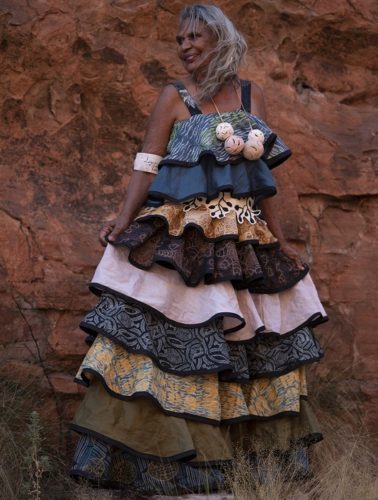
Craft / “Piinpi: Contemporary Indigenous Fashion”, National Museum of Australia, until August 8. Reviewed by MEREDITH HINCHLIFFE.
BENDIGO Art Gallery is known nationally for its exhibitions of fashions, and “Piinpi” is another wonderful show of Australian indigenous fashion, showing at the National Museum of Australia.
The word “Piinpi” is lyrical in form and meaning. It captures and describes “a sacred connection between people, place and land”. Of course, it is far more than that – it is the land talking to the local people who inhabit it, the cultural knowledge that guides much of their lives.
This is a celebratory exhibition. It is exuberant, joyous, and colourful. It honours many older women, and I was particularly impressed by the fact that Peggy Griffiths is modelling “Legacy Dress”, to which several artists have contributed. The multiple frills are hand-blocked printed on linen and cotton. Ms Griffiths is a highly respected elder, artist and cultural advisor.
Simple techniques are used to decorate the fabrics and while some works are structured simply, many are not.
Grace Lillian Lee is showing four woven body sculptures from a series titled “A weave of reflection”. Each work represents a season – in keeping with the name of the exhibition – and are in bright colours. These hang below the wearer’s waist, covering her front almost like an apron. The materials are soft and pliable: cotton webbing, cotton yarn, cane and goose feathers. They make a stunning entrance to the exhibition.
Two outfits are more formal – both dresses with short, bolero jackets. Both, by Deborah Kamanj Wurrkidj, they show the foods that the communities eat: bush plums and water lily roots, and are screen printed on silk. In the past I have been critical that some indigenous textile have been poorly made up, detracting from the fabric or weaving they are created from. Raw Cloth from Darwin has made these two garments and they are professionally finished.
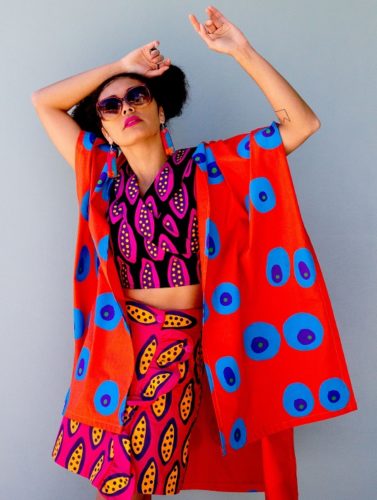
Shannon Brett founded the label LORE, currently based in Brisbane. Her designs are bold, telling dynamic stories, and hand-painted in ink on fabric. The searing colours throb on the mannequin and the pages of the catalogue.
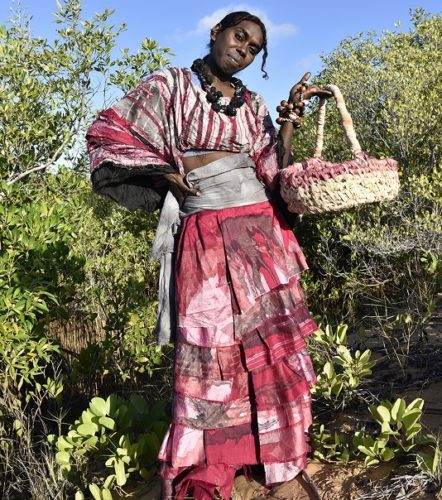
Recycled sari silk and plant dyes were used to create the fabric for “Pink Dress” by Maicie Lalara of Anindilyakwa Arts on Groote Eylandt. A layered full-length skirt with unfinished edges is balanced by a cropped top, with over-sized sleeves. The different pinks and reds sing, and the stripes and splashes of dyes are highlights.
An excellent catalogue accompanies this exhibition, and the joy, love, and friendships between the women in the images modelling the garments shine through.
I encourage everyone to visit the exhibition and to come out having been uplifted!
Who can be trusted?
In a world of spin and confusion, there’s never been a more important time to support independent journalism in Canberra.
If you trust our work online and want to enforce the power of independent voices, I invite you to make a small contribution.
Every dollar of support is invested back into our journalism to help keep citynews.com.au strong and free.
Thank you,
Ian Meikle, editor

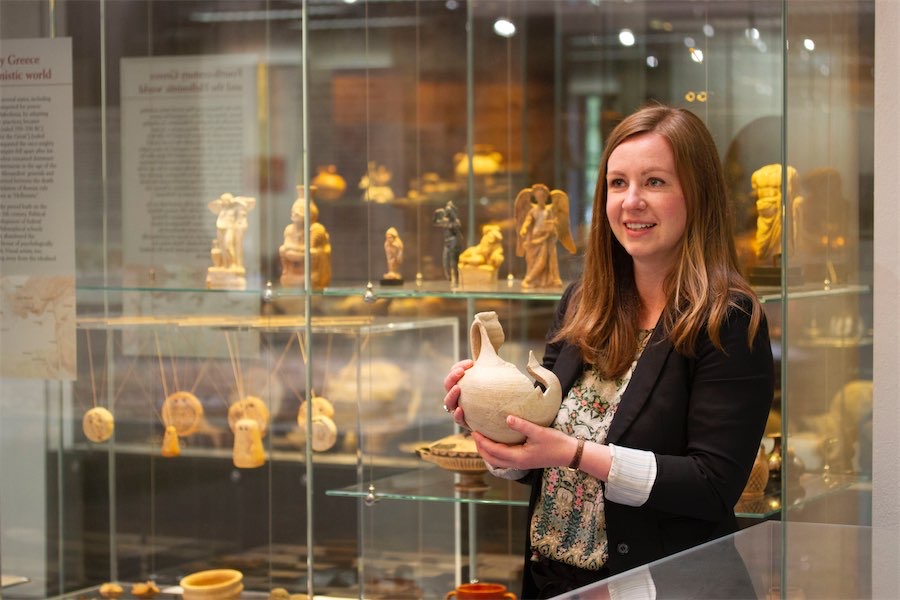
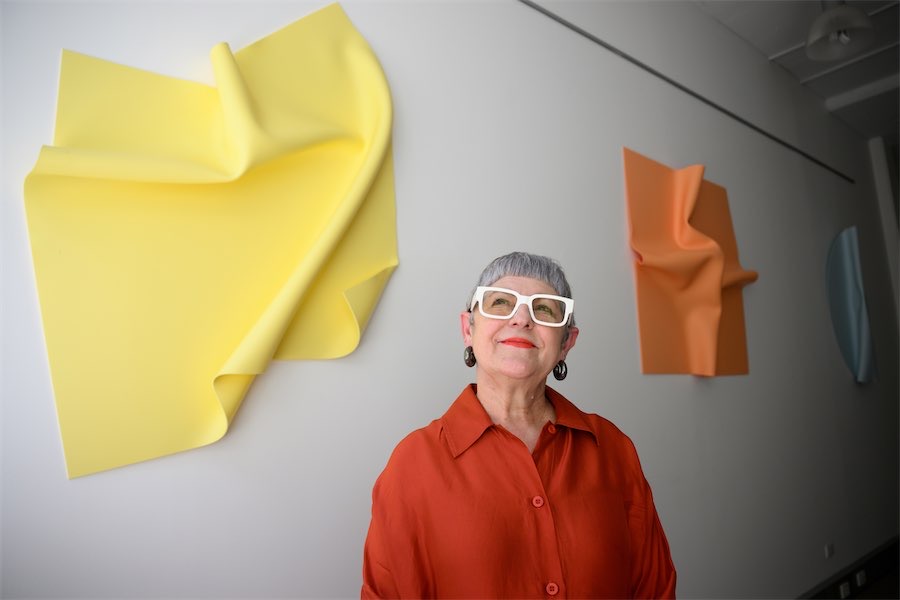

Leave a Reply